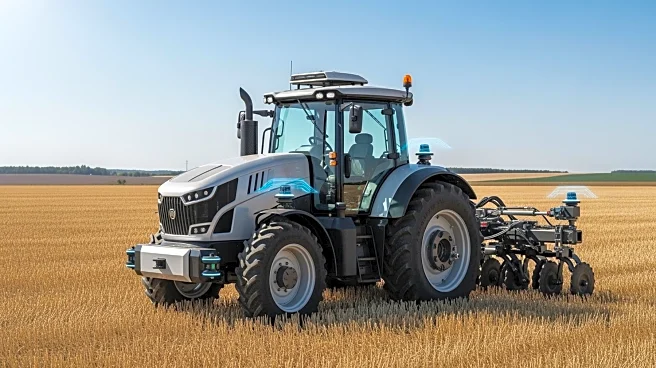What's Happening?
A large arable farm in the Netherlands, Schlepers, has successfully tested an autonomous tractor equipped with the iQuus system. The farm used a Fendt 516 tractor to autonomously cultivate two potato fields with a subsoiler. This initiative is part of
the Dutch NPPL project, which explores alternative methods of weed control as chemical options become limited. The autonomous system was operated alongside a potato harvester, allowing for close monitoring and immediate intervention if necessary. The tractor performed well, although it lacked the intuitive adjustments a human driver might make, such as adapting speed or steering on challenging terrain.
Why It's Important?
The adoption of autonomous tractors could significantly impact the agricultural industry by addressing labor shortages and reducing operational costs. Automation in farming is becoming increasingly attractive as labor becomes more expensive and scarce. For large farms, the investment in autonomous technology can quickly pay off, especially for repetitive tasks like rotary cultivation or stubble tillage. This technology not only replaces human labor but also minimizes operator errors, ensuring precise execution of tasks. As the technology becomes more affordable, it could lead to widespread adoption, transforming farming practices and increasing efficiency.
What's Next?
The Schlepers family is currently prioritizing weed control over full-scale adoption of autonomous tractors, but they recognize the potential for these technologies to work in tandem. As the cost of autonomous systems decreases, more farms may consider integrating them into their operations. The success of this trial could encourage further investment in autonomous farming technologies, potentially leading to broader implementation across the agricultural sector. Stakeholders in the industry, including technology developers and policymakers, may focus on making these systems more accessible and cost-effective for farmers.















